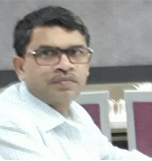| Webinar Date: | 30-10-2020 |
| Webinar Time: | 04:00 PM to 05:30 PM |
India’s speed of adopting Electric Vehicles can be defined but with only one word ‘ambitious’. As per FAME II, out of the total corpus amounting to 8595 Cr, Rs 3,545 crore ($500 million) or about 41%—is allocated to subsidise the purchase of 5,595 buses for various state transport undertakings (STUs). That’s 7X the budget allocation and 5,175 more buses than those sanctioned under FAME I. In FY20, 3400+ Electric Cars and 600 Electric Buses were sold in India. EVs are on the fast-track.
But India is also a country of speed breakers. FAME II facilitates a leasing model for STUs which means the Electric Bus manufacturers run and maintain the buses including its charging infrastructure. The nature of charging points or their specifications are not defined and left to be decided by manufacturers. Under FAME II, Govt. has taken-up the target to set-up one charging station every three km in cities and every 25 km on both sides of highways.
Many of such EV charging stations are looked at by public utilities as alternate business model for their growth in coming decades. Several tenders have been awarded to both Govt. agencies and private companies in view of achieving this milestone. With rise in EV charging infrastructure Power Quality concerns such as brownouts, voltage issues, harmonics and more are certain to see a rise especially when the public electricity distribution system suffers from legacy effect of not much capital invested earlier to either strengthen the grid or maintaining high PQ environment . Absence of robust grid, right assets and mitigating PQ challenges in system oriented manner may impact such business models right from the word “Go”.
No doubt, the Charging infrastructure is the backbone of EVs. But poor Power Quality issues are the speed breakers that could break this backbone. With the high cost of Charging Stations, Power Quality concerns will define the reliability and sustainability of EV infrastructure and therefore be crucial to the speed at which India can reach its EV ambitions.
This Webinar will highlight the PQ issues that must be addressed as India steps-up its charging infrastructure by a multi-fold.
- Key Power Quality concerns for reliable Electric Vehicle Charging Infrastructure
- Case Study – PQ issues and its impact on safety and reliability of Grid and Power Distribution Systems
- The evolving global standards for EV Charging Stations and the outlook in view of PQ regulations in India
- Solutions for mitigating the PQ issues in EV Charging Infrastructure
The Webinar will also touch upon several other related issues for that must be considered by suppliers and manufacturers of EV Charging Stations in view of assuring good PQ.
It is important that all the stakeholders understand the importance of Power Quality and develop an aligned point of view on urgent basis to address the PQ concerns stemming up from the rising charging infrastructure. This is also in view of the adaptation of National PQ regulations by various State Electricity Regulatory Commissions (SERCs) and Distribution Companies (DISCOMs) expected in near future.
WHY SHOULD YOU ATTEND?
This webinar brings domain and policy experts with deep know-how of PQ issues that are likely to surface with rapid adoption of Electric Vehicles:
- Focus on fundamentals of EV Charging – design, component sourcing, installation and maintenance for good PQ
- Importance of PQ monitoring to mitigate risks to reliability and safety of EV Charging Stations
- The future of EV Charging stations – technology alternatives such as renewables, local energy storage etc. and its impact on PQ
PANEL OF EXPERTS

Vikrant Vaidya
Partner and VP – EV Systems Engineering at pManifold Business Solutions, Practitioner, Trainers and thought leader
Over 20 years experience in automotive PoC studies, product development and integration (system modelling, vehicle architecture, controls and calibration) working for global OEMs like Tata Motors, General Motors, Jaguar-Land Rover, Groupe PSA, etc
Master’s degree in Energy Systems Engineering (University of Michigan – Ann Arbor, MI US)
Recognized innovations in Electric hybrid powertrain configuration, Battery farm sizing tool to use repurposed (H)EV batteries for grid frequency regulation, Charge levelling algorithm for a farm of repurposed (H)EV batteries for grid frequency regulation
DFSS Green-Belt certification by General Motors.
Download Presentation:
e-Mobility-PQ-Impact-India-by-Vikrant-Vaidya-pManifold2.pdf
Ashok Kumar Rajput
Chief Engineer (R&D Division), Central Electricity Authority Ministry of Power (Govt. of India), Researcher, Planner and Policy and Standards expert
Over two decades of expertise in the power and electrical domain
Member or leader in several GoI committees/sub-committees planning and defining the contours of emerging sectors including Electric Vehicles and its Charging Infrastructure
Deep insights and know-how on technical aspects of transmission and distribution infrastructure, power quality, tariffs
Spearheading several initiatives including creating the research basis and frameworks for policy formulation of electrical standards and regulations for traditional as well as several emerging areas such as Electrical Power Quality, T&D Upgradation, EVs, Charging Infrastructure etc.
Download Presentation:
PQ-Issues-in-Electric-Vehicles-by-Ashok-Rajput-CEA2.pdf
E. (Epko) Horstman
BSRi (Dutch Building Services Research institute) Value Added DMU Solutions – Netherlands, Building bridges between innovations and the market
After 27 years of having completed all operational, staff and (technical) policy functions in the installation sector
Driving Vision development, Business development, Arbitration and mediation; Research and advice; Program management; Lectures, knowledge transfer and events through BSRi’s expert services which are only used for exceptional requests
Specialties include Energy in the operational phase; Innovations in the installation sector; Arbitration and mediation installation sector; Harmonization of legislation and regulations for the installation sector; Power quality, DC voltage, power management; Complex issues, translated to simple and practical translation
Download Presentation:
PQ-Issues-in-Electric-Vehicle-by-Epko-Horstman-BSRi2.pdfDOWNLOAD RESOURCES
| PQ Issues in Electric Vehicles Key Takeaways by Manas Kundu.pdf |